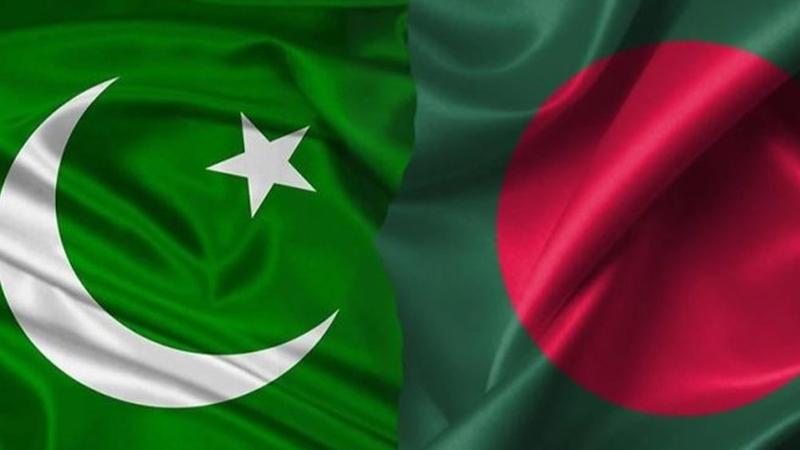Published 09:10 IST, December 5th 2024
Bangladesh Removes Security Clearance for Pakistanis to Get Visa Amid Tensions with India
The instruction follows a letter from the Security Services Division (SSD) of the Bangladeshi home affairs ministry which was sent on December 2.

Dhaka: Amid the growing diplomatic rift between Bangladesh and India over attacks on minorities, Dhaka has removed the requirement for Pakistani nationals of getting a security clearance before applying for a Bangladeshi visa.
Notably, the Bangladeshi Ministry of Foreign Affairs (MOFA) circulated a message to all Bangladesh missions abroad, directing them to facilitate visas for Pakistani citizens and those of Pakistani origin residing in any country.

The instruction follows a letter from the Security Services Division (SSD) of the Bangladeshi home affairs ministry which was sent on December 2.
This comes shortly after Bangladesh halted its visa and consular services in its mission in Tripura's Agartala with immediate effect following an attack targeting the Bangaldesh High Commission over the arrest of Hindu monk Chinmoy Das in Dhaka.
Security Breach at Bangladesh Mission over Hindu Monk's Arrest
Amid escalating tensions between the two countries, Dhaka summoned the Indian envoy posted there to protest against the alleged vandalism of its mission in Tripura.
Further, on Tuesday, police registered a suo motu case and arrested seven people for their alleged involvement in the vandalism incident at the Bangladesh mission. Action was also taken against four policemen for dereliction of duty, West Tripura district SP Kiran Kumar K said.
Meanwhile, a Bangladesh court on Tuesday deferred to January 2 next year hearing on the bail petition of Das on a government plea as no lawyer appeared on his behalf.
The move also comes a day after the Pakistani envoy Syed Ahmed Maroof held a meeting on Tuesday with Bangladesh Nationalist Party (BNP) chief Khaleda Zia, a rival of Sheikh Hasina .
This development appears as an attempt by the Muhammad Yunus-led interim government of Bangladesh in fostering stronger ties with Pakistan following the ouster of erstwhile Prime Minister Sheikh Hasina who held a pro-India stand.
Political Upheaval in Bangladesh With the Downfall of Hasina
The India-Bangladesh ties have strained since August, when a popular uprising – now widely termed the “monsoon revolution” – toppled the government led by Bangladesh’s longest-serving PM Sheikh Hasina. The diplomatic tensions come amid a significant shift in the political landscape of Bangladesh which witnessed the downfall of Sheikh Hasina as her 15-year-long reign came to an end. The tensions spiraled when Hasina fled to India in August following huge violent protests against her government over the job-quota policy. The student protest, which initially demanded reforms to the quota system that governed the distribution of government jobs in the country, intensified and turned violent after Hasina refused to meet their demands, citing court proceedings.
Further fuelling anger among the protesters, Hasina described the them as "razakar", an offensive term used for those accused of conniving with Pakistan's army in 1971 to betray the country. The entire episode resulted in the political upheaved of the South Asian country with Hasina resigning in the face of massive public protests and fleeing to India. This was followed by the installation of an interim administration under Yunus.
Updated 14:46 IST, December 5th 2024




